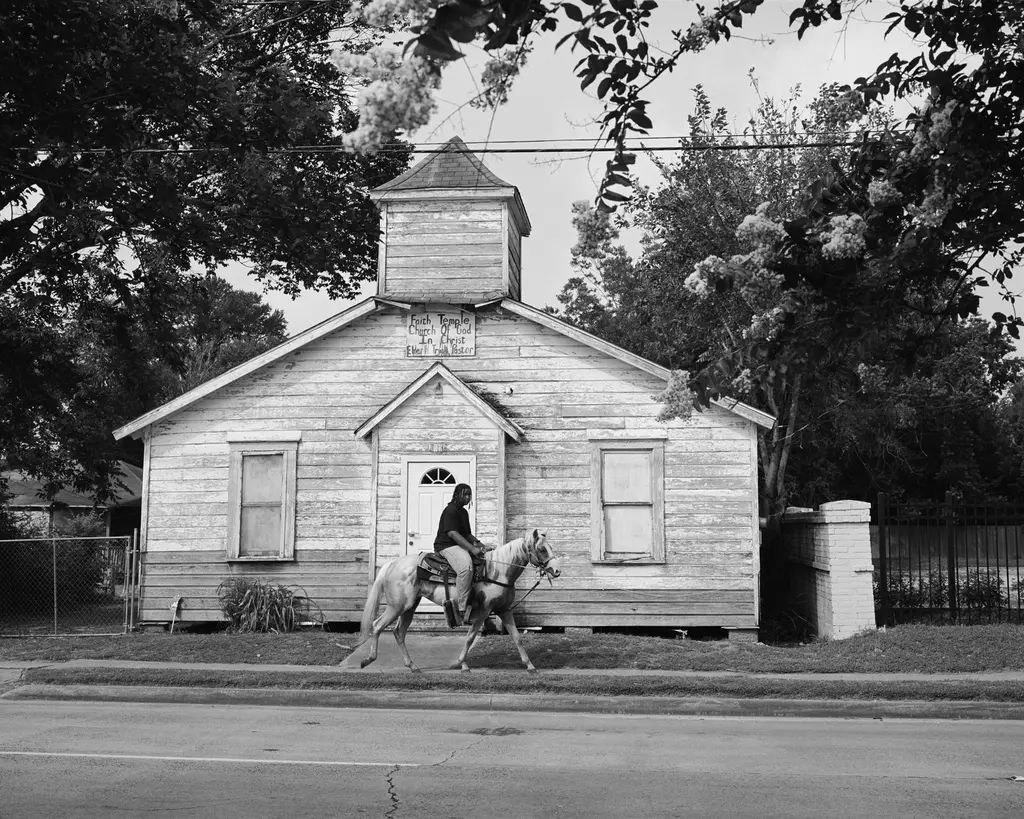Paying tribute to one of Spain's greatest photographers
- Text by Lua Ribeira
- Photography by Cristina Garcia Rodero/Magnum Photos

This story appears in The Documentary Photography Special VII. Get your copy now, or subscribe to make sure you never miss another issue.
When I look at the images Cristina Garcia Rodero makes, I see a synergy in our work. I believe it’s because we both like to spend time with people. We enjoy the union one creates with others through the process of photography – there’s a similar energy there. She speaks a lot about religion and the body, which are themes I’ve explored in projects like Noises In the Blood, which is about dancehall culture in the UK, and Subida al Cielo, a series on death and mortality. In our work, we are trying to express universal themes – the strength and fragility of people, the human condition, collective behaviour, passion, pain – in ways that still remain revealing.
Cristina began photographing the deep-rooted rites and traditions of small towns and villages in rural Spain when she was in her early 20s. Back then – during the ’70s and ’80s – she was one of the few artists looking at these subjects, which were at the time ignored and perceived as regressive.
When Cristina was photographing, it was at the end of Franco’s dictatorship. Spain was turning towards Europe, paying more attention to tourism and modern values. But she was going to these little places and documenting the folklore – the traditional practices, religious and pagan rituals. All of these things are extreme in their expression; they define very precisely our relationship with death, pain, power, and each other. The project ended up lasting 15 years.
The pictures make up her famed 1989 book España Oculta. My older sister, who is also a photographer, always had a copy of it at home. I remember looking at it when I was younger, feeling both excited and overwhelmed. It documented an authentic Spain – pilgrimages, carnivals, processions – I had never fully experienced. What captivated me most was the way each photograph seemed to transcend time and place to touch upon something more universal – in a theatrical kind of way.
Most of the photos also happen to be made in my region: Galicia, in Spain’s northwest. I recently visited many of the traditional events that Cristina captured all those years ago. Her images became a nostalgic guide for me to return to these places; ones that have changed a lot over the years but somehow still feel the same.
I met Cristina for the first time not long ago. I was fascinated by what she had to say – not just about photography, but about life and art. We connected because we share the same language, and also because we share ideas about what photography is, even if we use different strategies. Her advice was always to keep a strong personality: be different, do your own thing, focus on that mission and be generous.
To me, Cristina is una maestra – a master and a teacher. She was, and remains, a courageous woman that opened doors for many of us. Her relationship with Spain and Spanish culture is what makes her work extraordinary. The more I look at it, the more I see its depth; the sacrifice and the layers behind it.

© Lua Ribeira/Magnum Photos
This story appears in The Documentary Photography Special VII. Get your copy now, or subscribe to make sure you never miss another issue.
Enjoyed this article? Like Huck on Facebook or follow us on Twitter.
Latest on Huck

Meet the trans-led hairdressers providing London with gender-affirming trims
Open Out — Since being founded in 2011, the Hoxton salon has become a crucial space the city’s LGBTQ+ community. Hannah Bentley caught up with co-founder Greygory Vass to hear about its growth, breaking down barbering binaries, and the recent Supreme Court ruling.
Written by: Hannah Bentley

Gazan amputees secure Para-Cycling World Championships qualification
Gaza Sunbirds — Alaa al-Dali and Mohamed Asfour earned Palestine’s first-ever top-20 finish at the Para-Cycling World Cup in Belgium over the weekend.
Written by: Isaac Muk

New documentary revisits the radical history of UK free rave culture
Free Party: A Folk History — Directed by Aaron Trinder, it features first-hand stories from key crews including DiY, Spiral Tribe, Bedlam and Circus Warp, with public streaming available from May 30.
Written by: Isaac Muk

Rahim Fortune’s dreamlike vision of the Black American South
Reflections — In the Texas native’s debut solo show, he weaves familial history and documentary photography to challenge the region’s visual tropes.
Written by: Miss Rosen

Why Katy Perry’s space flight was one giant flop for mankind
Galactic girlbossing — In a widely-panned, 11-minute trip to the edge of the earth’s atmosphere, the ‘Women’s World’ singer joined an all-female space crew in an expensive vanity advert for Jeff Bezos’ Blue Origin. Newsletter columnist Emma Garland explains its apocalypse indicating signs.
Written by: Emma Garland

Katie Goh: “I want people to engage with the politics of oranges”
Foreign Fruit — In her new book, the Edinburgh-based writer traces her personal history through the citrus fruit’s global spread, from a village in China to Californian groves. Angela Hui caught up with her to find out more.
Written by: Katie Goh

